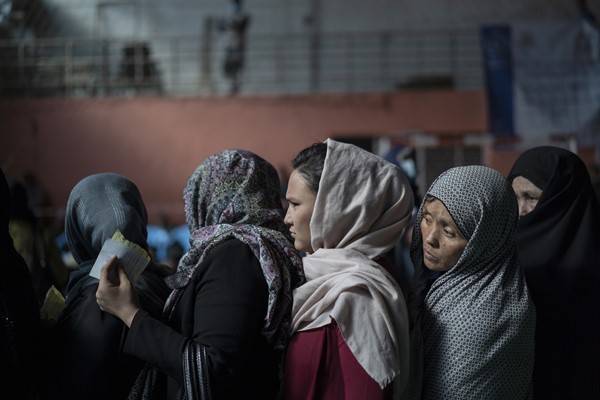International attention has been trained this week on Ukraine, where fears of an imminent outbreak of conflict have many observers worrying about the future of multilateralism in a period of strategic competition between the U.S., Russia and China. Yet an equally troubling bellwether for the future of multilateralism lies in the world’s collective failure to address the ongoing crisis in Afghanistan.
Five months after the Taliban’s takeover, the international community appears no closer to an answer on how to manage its strategic interests in Afghanistan, from dealing with the Taliban to addressing the needs of millions of suffering Afghans. This, despite the fact that there is little disagreement over what’s at stake there. It’s rare these days to find an issue where the U.S., the European Union, Russia, Iran, Pakistan, China and India largely see eye-to-eye. But on Afghanistan, there is a fair amount of consensus. There have been no open advocates for Taliban recognition. And while the U.S. and its Western partners have been more vociferous about the Taliban’s human rights record and treatment of women than their regional counterparts, all regional and international partners have offered a similar baseline of demands: the need for the Taliban to take a more inclusive approach to governance, curb migration and illicit trafficking flows, and prevent Afghanistan from becoming a new haven for terrorism.
Despite this core agreement, the international position on Afghanistan remains both costly and politically rudderless. The massive aid and funding cut-offs, sanctions and asset freezes put in place after the Taliban’s takeover have strangled the Afghan economy, yet failed to shift the Taliban on the core areas of concern. As it stands now, half the population—some 23 million—is estimated to be in dire need of aid, and the country is expected to approach “universal poverty,” with 98 percent of households at the poverty line, by this summer.

